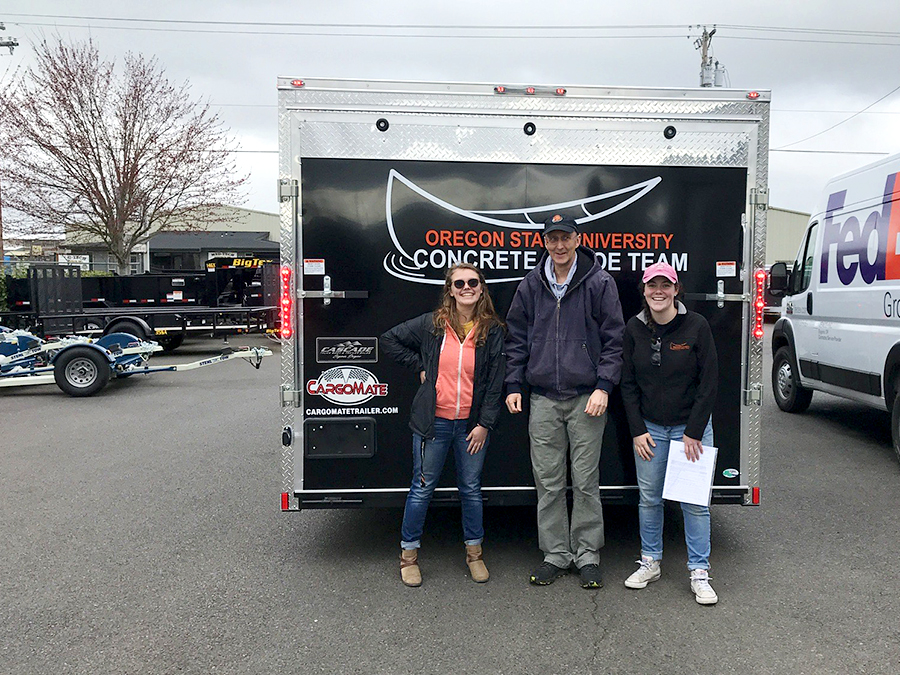This winter, the Oregon State University Student Chapter of the American Society of Civil Engineers acquired a new trailer for the OSU Concrete Canoe Team.
“Funds for the trailer were acquired over a number of years, with support from the College of Engineering, the School of Civil and Construction Engineering, and generous industry partners,” said Thomas Miller, associate professor of structural engineering.
This year’s co-captains of the concrete canoe team, Maddie Hall and Haley Madland, played a key role in facilitating the purchase of the trailer.
While the 2020 ASCE Pacific Northwest Student Conference was cancelled in response to the COVID-19 pandemic, the trailer will be used to transport the concrete canoe to future regional and national competitions, practices, and displays at various Oregon State and industry functions.
“Their hard work is appreciated and we were all saddened by the cancellation of the Pacific Northwest Student Conference,” said Rawan Al Naabi ASCE Student Chapter executive chair.
In addition to their work on obtaining the canoe trailer, Hall and Madland directed the team as they poured a practice canoe fall term, established a pioneering practice conference, and poured the competition canoe before the end of winter term.
“They are dedicated, committed and did an absolutely great job leading the team and preparing them to take over next year,” Al Naabi said.
